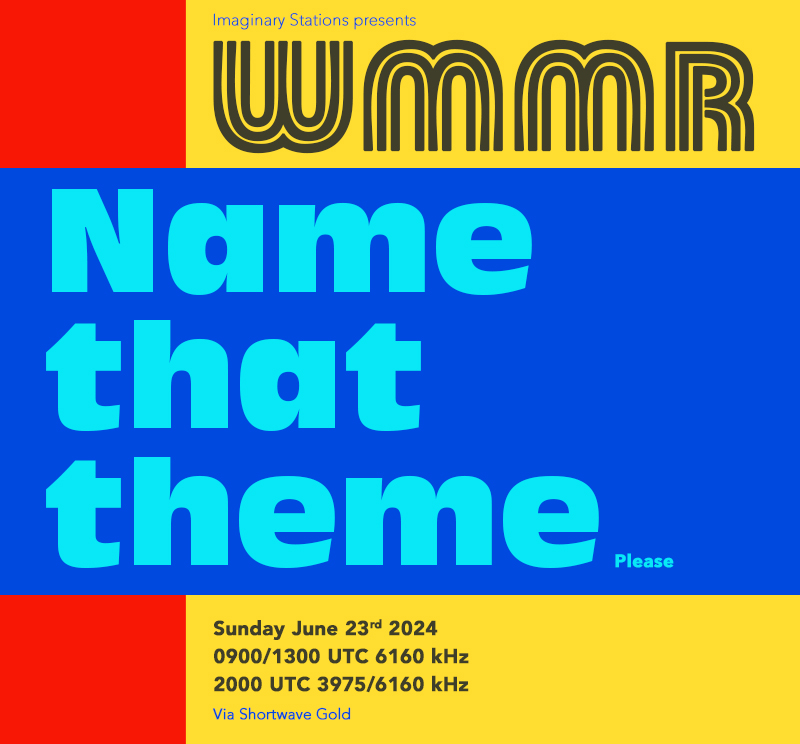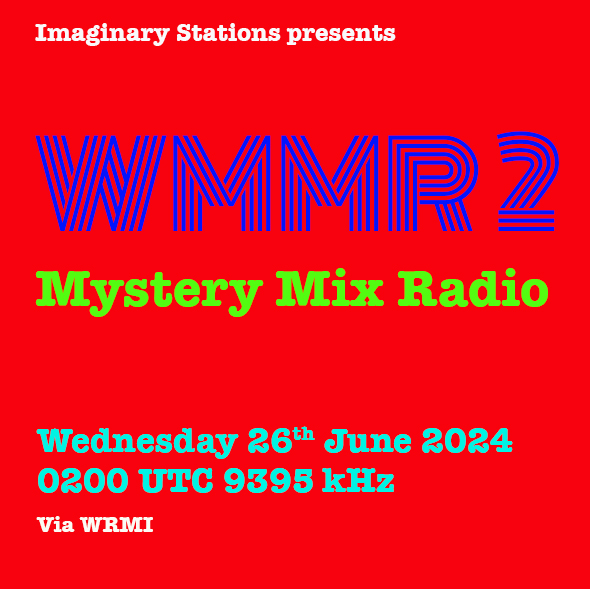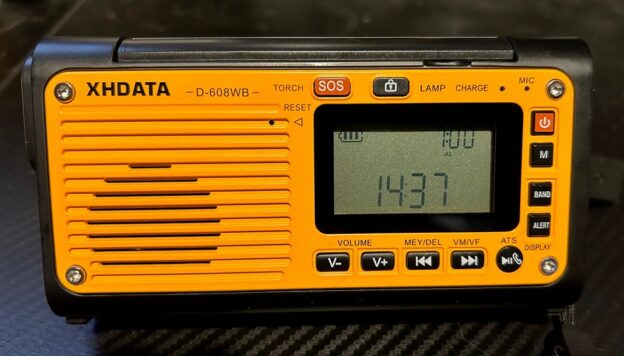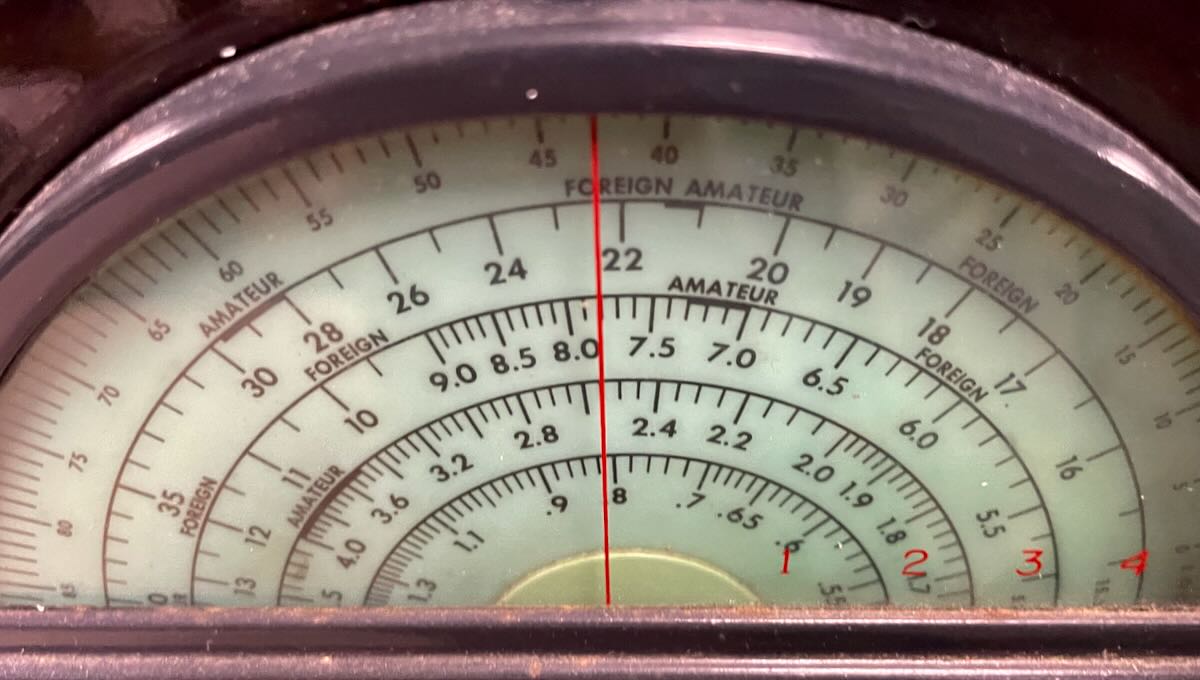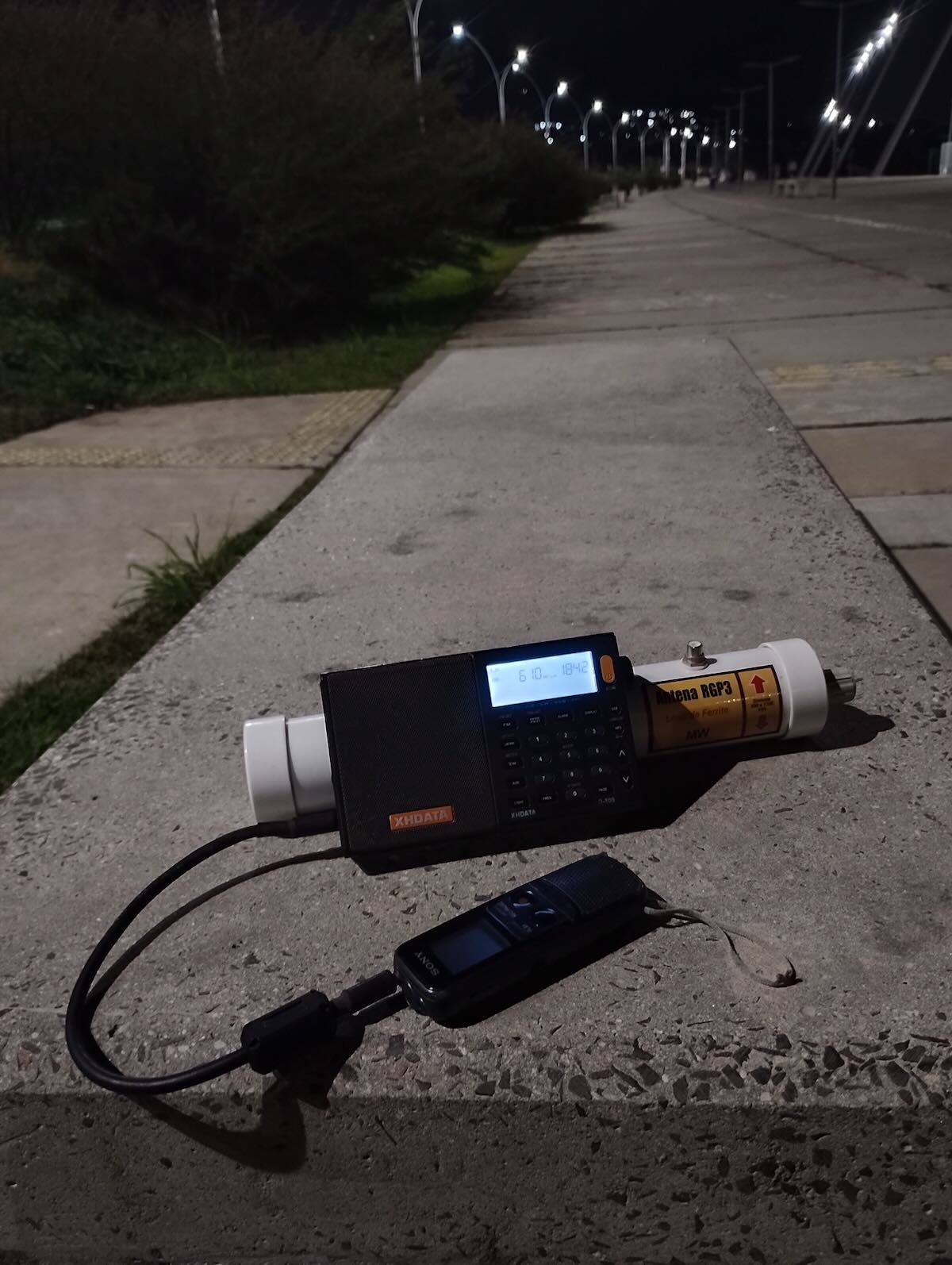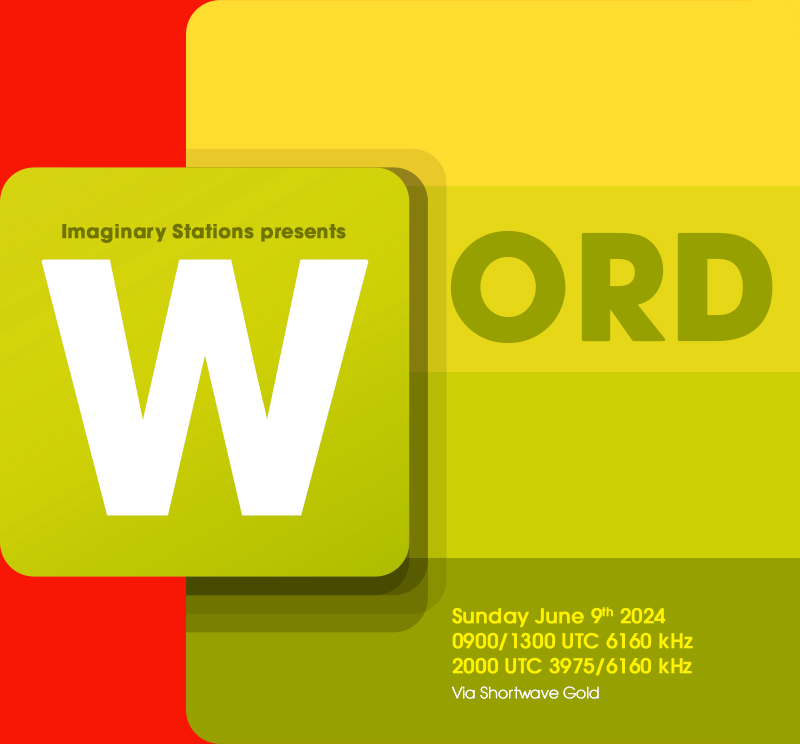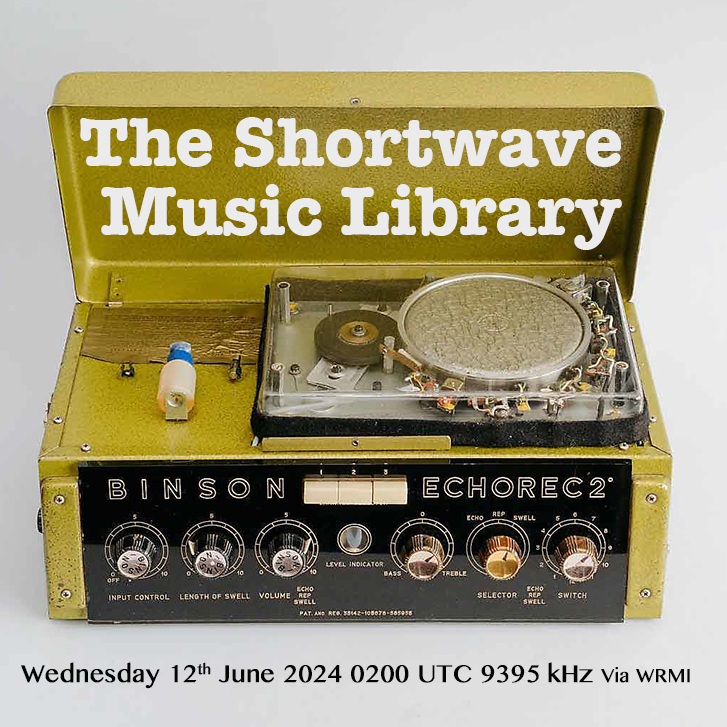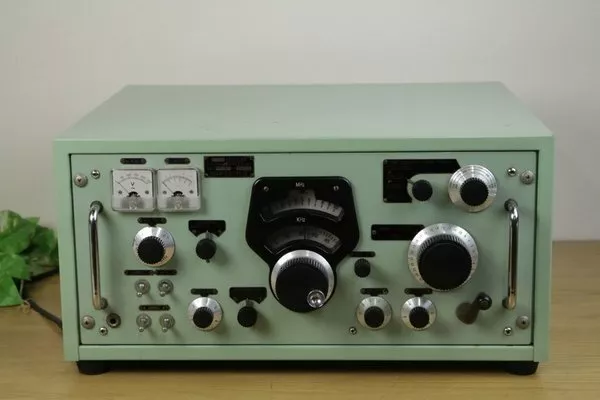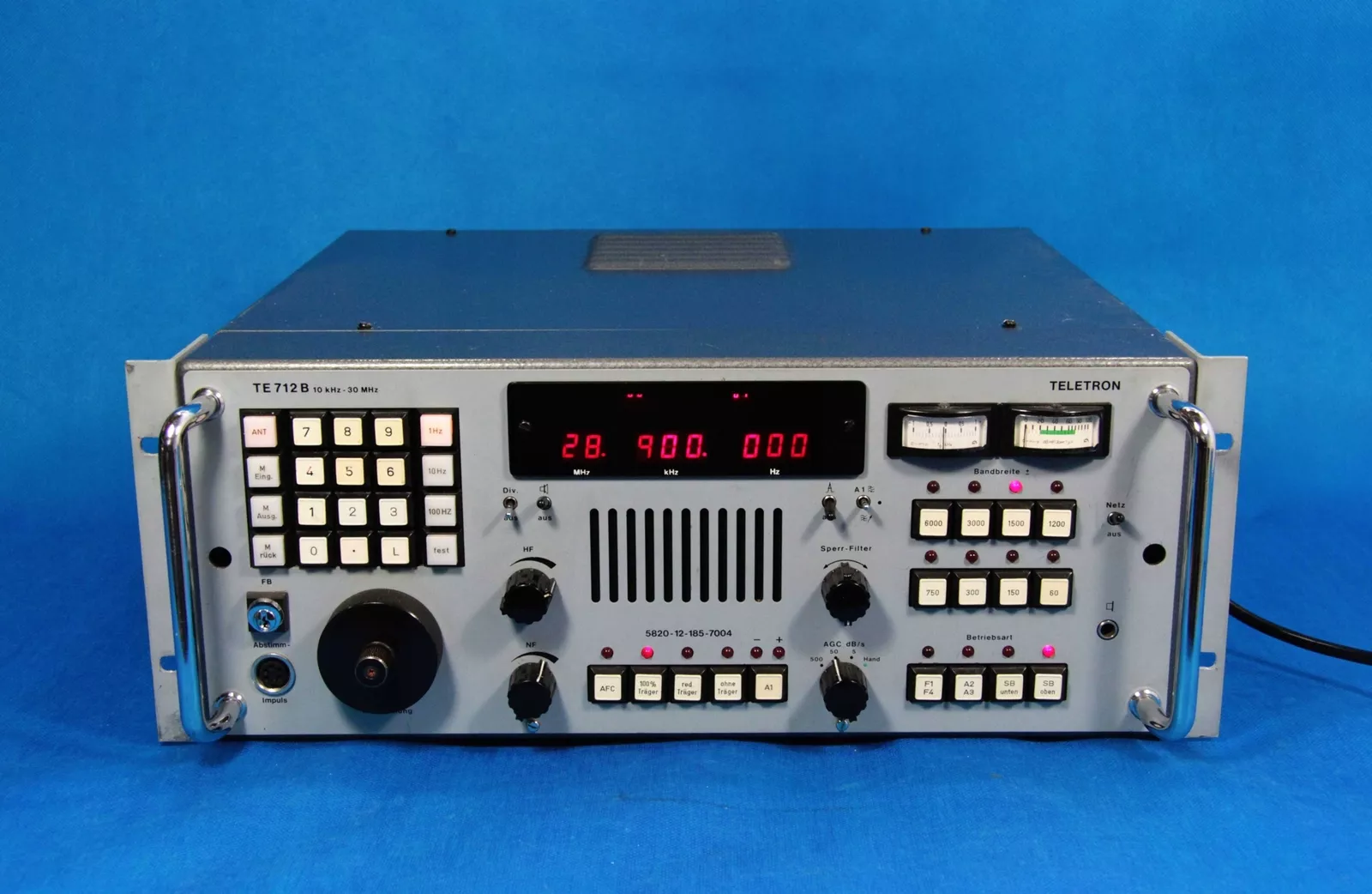Review By Robert Gulley, K4PKM
This is my first experience with an XHDATA radio, and my initial impressions are quite positive. This weather radio has an impressive set of features and appears to be built quite solidly. I say “appears” because I have not done (nor intend to intentionally do) a drop test! But my sense of the radio is that it can withstand some knocking about while still functioning (but please do not test this theory! YMMV!).
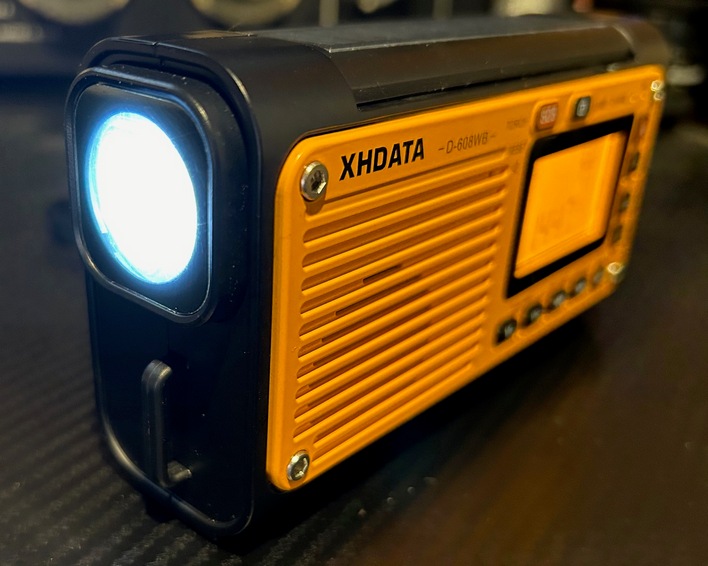
Standard torch but with 3 brightness levels
From the manufacturer’s site, here is a listing of features:
Features & Specifications:
FM: 64-108 MHz / 76-108 MHz (Stereo at Earphone Out)
87-108 MHz / 87.5-108 MHz
MW:522-1620khZ (9K Steps) / 520-1710 KHz (10K Steps)
SW: 1711-29999 KHz (5K Steps)
ATS Scanning with Auto Save
NOAA Weather Band with Scanning Alert Mode
VF/VM Tuning Modes
Bluetooth Playback & Calling
Memories: 100 AM – 100 FM – 300 SW (Add Automatically or Manually)
Clock with Alarm & Sleep Timer
TF Card Playback (Supports Up To 32 Gb Card)/Prev/Next Track/Loop & Fast Scan Modes
Flashlight with 3 Brightness levels
Flip Up Lighting Panel with 3 Brightness Levels
Earphone Jack 16 – 32 ohms (Stereo)
SOS Alarm Button
Enhanced Audio with Ported Enclosure
Lock Mode
Battery: Li-ion 18650 3000 mAh (Charges via USB C Port, Crank, Solar Panel)
Low Battery/Charge Indicators
USB Output for charging Cell Phones
Reset Button
Dimensions: (Approx) 6” W x 3” H x 1 ¾” D
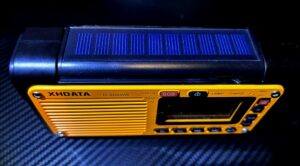
Solar cells with a twist – the cells along with the LEDs can be rotated up and down
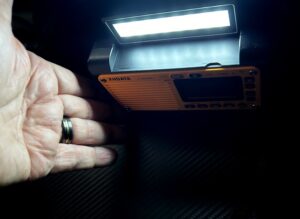
Three brightness levels for these LED lights – a nice touch!
Let me start with the items that impressed me.
- Weight. This is not a typical light-weight radio. It feels solid, has some bulk to it, and I like the feel. It weighs in at 11.5 ounces, which is comparable to the two other solar powered weather radios I own, which come in at 12 and 12.25 ounces respectively.
- This radio has both a torch and an LED panel, each with 3 levels of brightness. While you will not light up a room with either, they are both quite sufficient for their intended purposes. The LED is particularly useful to light up the immediate area around the radio, and on it’s brightest level puts out a good amount of light. Being LEDs, the power drain is very reasonable.
- The radio is powered by multiple sources of course, as is typical with today’s weather radios, but a unique feature compared to my other radios is an articulating solar cell (and LED) panel. This allows you to follow the sun for quite a while as it rotates in the sky.
- The antenna, while not very long, is very solid and should last a long time if not subject to abuse (and looks to be easily replaceable if something does happen).
- The battery is easily accessible and replaceable with the now-common 18650 rechargeable battery. (As an aside, for those who, like me, prefer to charge batteries outside a radio when possible, there are charging units available from the usual sources if you want to minimize heat and charging wear-and-tear on your radios and flashlights.)
- The ATS function works quite fast on FM, finding 21 stations in my very rural area just off the built-in whip antenna
- Keypad layout is minimal and functional. For those wanting a direct-entry frequency keypad, this radio is not so equipped. However, running through the memory channels is easily done, without multiple menu hoops through which to jump.
- Tuning is both a blessing and a curse (see cons below for the negatives) – the tuning can be accomplished at two different speeds, allowing for a slow tune and a bigger jump depending on how fast you turn the tuning dial. This can be particularly useful with SW, but also when manually scanning the MW band or when finding tracks on a memory card.
- The crank can be extended as a stand at a few different angles. I am not sure if this was intended, but it works nicely!
- When in SW mode, the band is displayed as you tune (i.e. 41mb, 25 mb, etc.)
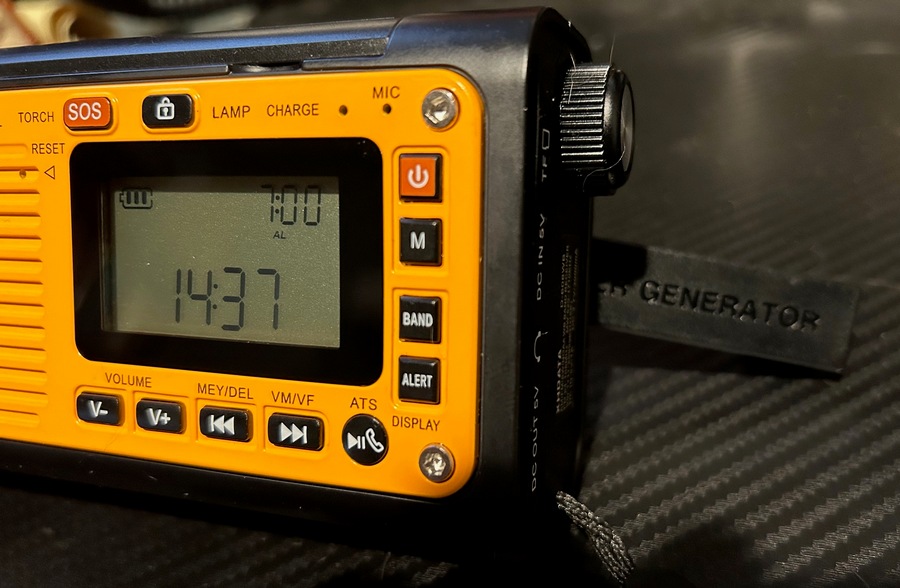
I am not sure if this was intended or not, but the crank can act as a stand
Less impressive (but see conclusions):
- Tuning can be slightly erratic, making bigger jumps at times than intended. This can happen in slow mode (one click of the tuning wheel at a time), or it can happen when the tuner switches between slow and fast mode and you didn’t think you were turning it fast enough for the switch. On the plus side, there is one arrow displayed when tuning in slow mode, and two arrows when in fast mode, so it is easy to see when it has switched modes.
- There are rubber strips glued into slots on the bottom of the radio to give it a little more resistance to sliding, but I feel it makes the radio slight more unstable – you may disagree since the effect is minimal.
- Soft muting when tuning – I know this is a biggie for many folks, so I mention it (again, see conclusions)
- No SSB (not that I expected it).
- Three NOAA stations come in for me which is typical, but I do have weather radios which can receive 4 well enough to copy, so not quite as sensitive. However, two or more is adequate to catch weather forecasts for your area in case your closest station is down for some reason
- ATS on SW and MW was not impressive – perhaps moving too quickly? Many stations come in with good audio, but the scan did not find them. Again, YMMV.
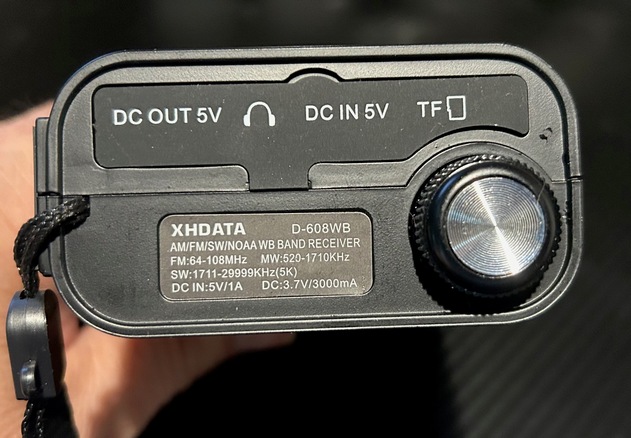
On the side are the input and output USB connections, along with the TF card slot.
Conclusions
I find this to be a good radio for its intended purpose – a Weather Alert radio with solar, lights, and multiple charging power options for operating, and an option for charging small devices if needed. This is not, nor should it be compared to, stand-alone shortwave radios. This is a bonus, and it works well for AM shortwave stations. That it does not have SSB is not an issue for me – I have plenty of radio options to enjoy during a power outage which are capable of SSB upper and lower sidebands.
The soft muting will no doubt bother some, but again, this is is primarily a weather and emergency radio, not a radio designed for pleasurable shortwave listening. As for the audio itself, the speaker produces a good clean sound, and there is even a type of bass boost which helps the audio even more. AM, FM, and SW stations sound good, and I find the audio to be quite strong out of this compact unit.
A replaceable/removable battery is a real plus for me both in terms of charging and for popping in a fresh battery while charging a drained battery. I like having backups for my backups, so this is right down my alley.
The unit is a good size, compact but solid, and has all the useful controls easily reached/manipulated. The antenna is solid, the LED lights are a nice touch, and it is a radio I believe could be counted on when needed. (Oh, and it is reasonably priced as well!)
As always, these are my personal, honest opinions. While the XHDATA folks approached me for the review and sent a unit to me free of charge, I always call it as I see it, good or bad. I happen to think this radio is a keeper!
Cheers! Robert Gulley (All photos by the Author)
Click here to check out the XHDATA D-608WB on Amazon.com
(note: this is an affiliate link that supports the SWLing Post at no cost to you. Thank you!)

